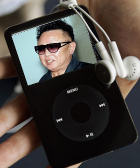 A headline to an article in today’s Washington Post breathlessly announced: “U.S. Bans Sale of iPods to North Korea.” The copy editor at the WaPo, however, jumped the gun since the ban is not yet in place. The article was also inaccurate in several other respects which we, at ExportLawBlog, feel compelled to correct.
A headline to an article in today’s Washington Post breathlessly announced: “U.S. Bans Sale of iPods to North Korea.” The copy editor at the WaPo, however, jumped the gun since the ban is not yet in place. The article was also inaccurate in several other respects which we, at ExportLawBlog, feel compelled to correct.
First, the background. The current sanctions regime against North Korea forbids imports from North Korea but permits exports to Korea of all items not otherwise subject to export control. On October 14, shortly after North Korea’s nuclear test explosion, the U. N. Security Counsel passed UNSCR 1718 which stated that U.N. Member States (such as the U.S.) are required to take all actions necessary
to prevent the direct or indirect supply, sale or transfer to the DPRK, through their territories or by their nationals, or using their flag vessels or aircraft, and whether or not originating in their territories, of . . . luxury goods.
The resolution did not define luxury goods, so the U.S. has been busy developing a provisional list which you can find here in the United States’ “30-Day Report for the UN Security Council on Efforts Toward Implementing UNSCR 1718.” This report was released on November 13 by the Bureau of International Security and Non-Proliferation (“ISN”) at the State Department. That list is still identified as provisional, and I can find no record that ISN or OFAC have taken any official action to give the list force of law, although such action may be imminent. So, if you’re planning on sending an iPod to North Korea, you had better hop to it.
The WaPo article also made it sound like the list targeted brand name goods:
The Bush administration wants North Korea’s attention, so like a scolding parent it’s trying to make it tougher for that country’s eccentric leader to buy iPods, plasma televisions and Segway electric scooters. . . . [T]he list of proposed luxury sanctions, obtained by The Associated Press, aims to make Kim’s swanky life harder: No more cognac, Rolex watches, cigarettes, artwork, expensive cars, Harley Davidson motorcycles or even personal watercraft, such as Jet Skis.
In fact the luxury goods list is not brand-specific and is quite general. It doesn’t target Harley Davidson motorcycles but all motorcycles. The iPod is not singled out since the list bans all “personal digital music players,” thus effectively crushing the last hope of Microsoft to find someone to buy its new Zune music player. Cognac is forbidden but only because the list forbids all exports of “wine, beer, ales, and liquor” to North Korea.
Leaving aside the WaPo‘s inaccurate coverage of the issue, what will be the impact of these sanctions, if and when implemented? First, it seems that the purpose of the list is little more than an effort to annoy North Korea’s conspicuous-consumer-in-chief and will have little impact on any actual trade. Under Secretary of State Nicholas Burns admitted as much in his testimony to the House International Relations Committee on November 16:
Further, we have defined a list of luxury goods banned for transfer to North Korea. The U.S. currently sends very few, if any, of these goods to the DPRK, but these new regulations will ensure that we are in full compliance with Resolution 1718
Nor is it likely that the sanctions will in fact lead to much annoyance in Pyongyang, because Kim Jong Il will likely be able to get all the proscribed luxury goods that he needs on the black market or even from U.N. member countries that don’t implement UNSCR 1718. And even if Kim Jong Il couldn’t get these goods, it seems unlikely that the dictator will abandon his nuclear aspirations over an iPod or a glass of Chateau Margaux.
 Permalink
Permalink
Copyright © 2006 Clif Burns. All Rights Reserved.
(No republication, syndication or use permitted without my consent.)

 Posted by
Posted by  Category:
Category: 

